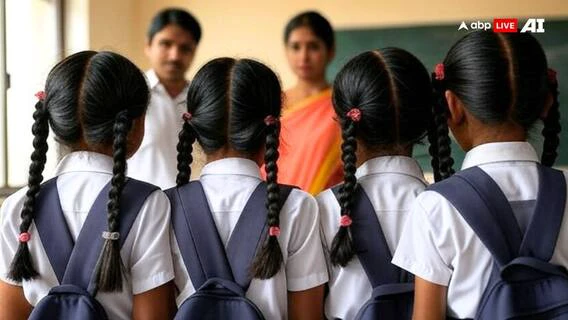Menstrual hygiene is not just a matter of biology, it is about health, dignity, and equal opportunity. Yet in India, millions of women and girls in rural, tribal, and low-income urban communities continue to struggle to manage their periods safely.
The consequences go far beyond inconvenience. Studies estimate that around 23 million girls drop out of school every year because of inadequate sanitary infrastructure.
Despite progress in awareness campaigns, menstruation is still treated as a taboo subject in many communities. Silence, stigma, and lack of resources together create a crisis with profound health, social, and psychological consequences.
The Health Consequences of Poor Menstrual Hygiene
Limited access to water, soap, clean toilets, and affordable sanitary products exposes women and girls to serious health risks. Often, these go undiagnosed or untreated due to cultural taboos and limited medical access.
According to Dr. Srinivas K Jois, Professor & Head, Dept of OBG, Bangalore Medical College & Research Institution, “It is very important for girls to maintain hygiene during menstruation. Unsanitary menstrual practices, including prolonged use of unclean pads or cloths and poor public restroom hygiene, often result in UTIs. Symptoms include painful urination and lower abdominal pain; left untreated, these can escalate into kidney infections. Using damp materials creates a breeding ground for fungal infections, leading to itching, sores, and even ulcers in severe cases.’
Dr Jois adds, ‘Reproductive Tract Infections (RTIs) is one of the most common outcomes of poor menstrual hygiene which can cause itching, pelvic pain, abnormal discharge, and can lead to more severe issues like pelvic inflammatory disease, ectopic pregnancy, and infertility. Women also face the problem of Bacterial Vaginosis (BV), which results from a disruption in the natural balance of bacteria in the vagina, a risk exacerbated by poor menstrual hygiene. It can lead to discomfort, increased risk of STIs (Sexually Transmitted Infection), and pregnancy complications such as premature birth.”
His warning highlights that poor menstrual hygiene is not merely uncomfortable but can jeopardise reproductive health and even future fertility.
Dignity in Menstruation: A Call for Awareness and Infrastructure
Health is only one part of the picture. In many Indian households, menstruation is still associated with impurity. Girls may be restricted from entering kitchens or places of worship during their periods, reinforcing stigma from a young age.
The absence of clean washrooms and proper facilities in schools and public spaces makes matters worse. Girls and women are often forced to manage menstruation in unhygienic conditions or avoid school and work altogether. For many, the denial of dignity and opportunity is just as damaging as the health risks.
The Way Forward: Education, Access, and Breaking Stigma
Change requires both awareness and action. Braja Kishore Pradhan, Founder of Aahwahan Foundation, points out the need for a comprehensive approach: “Solving the menstrual hygiene crisis in India requires an integrated, multi-stakeholder approach, one that treats menstrual health not as a peripheral issue but as a core developmental priority. Menstrual health education must begin before menarche for both girls and boys and be part of the school curriculum.’
He suggests that to promote open communication and lessen stigma, educators must receive training and parents must be made more aware.
‘Local production facilities, especially those operated by self-help organisations, eco-friendly substitutes, and subsidised sanitary pads can all increase access while generating income. Sanitary toilets, washrooms with running water, and incinerators for sanitary waste disposal should be standard in all schools, workplaces, and public areas,” adds Pradhan.
His words underline that solutions cannot be piecemeal. Tackling menstrual hygiene requires systemic reform, education that normalises menstruation, infrastructure that enables safe practices, and innovations that ensure affordability and sustainability.
Fallout of Poor menstrual hygiene
In India, this is more than a personal struggle; it is a public health issue, a gender equity issue, and a human rights issue. The health consequences, loss of education, and erosion of dignity show how urgently this crisis must be addressed.
By investing in awareness, infrastructure, and community-led solutions, India can ensure that no girl is forced to abandon her education or compromise her health because of a natural biological process. It is time to replace silence with support, stigma with dignity, and neglect with action.
